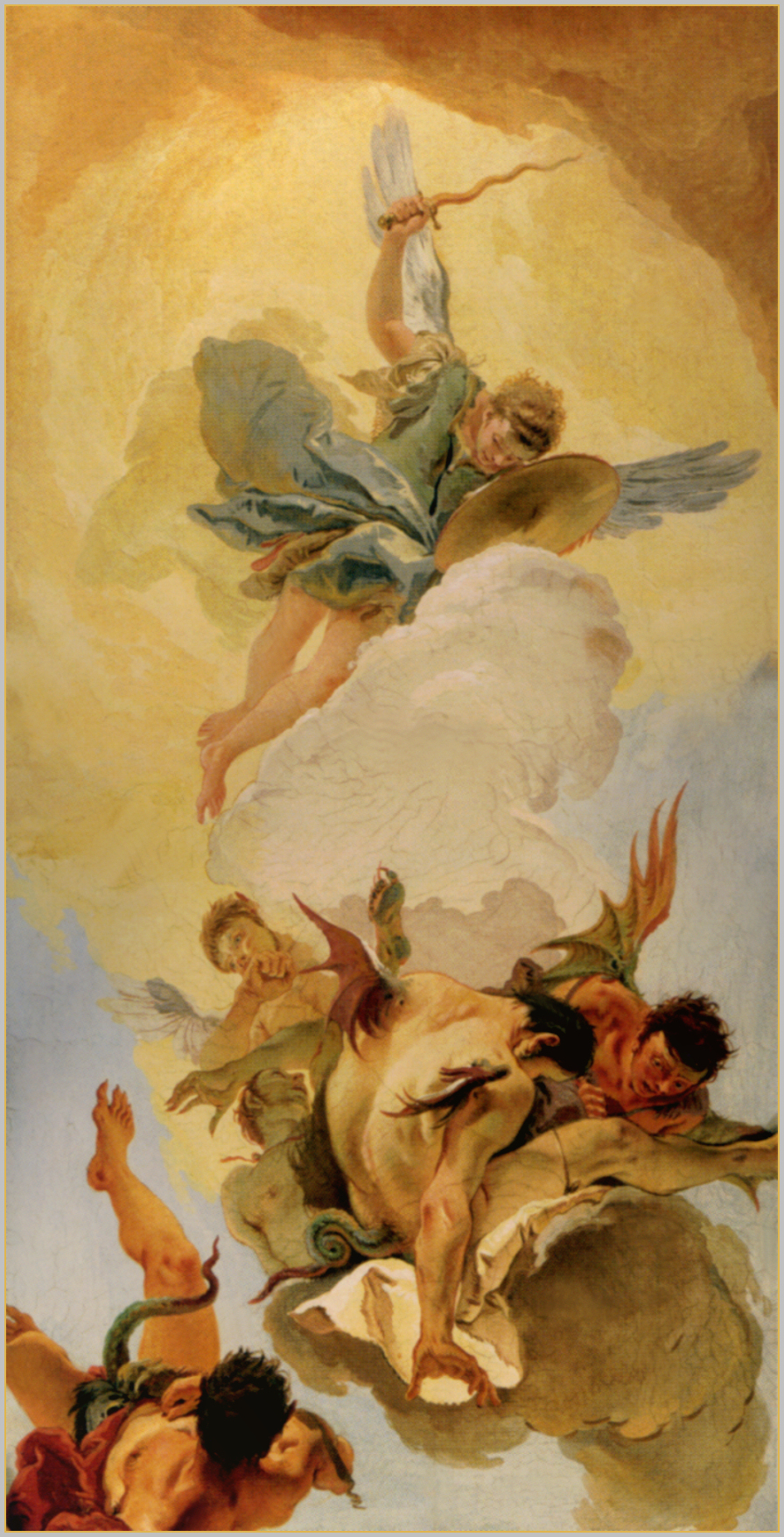
Angels


The Fall of the Rebel Angels
NO CITATION
§
29. The Fall Through Sin and the Rejection of the Bad Angels
1. The Fall through Sin
The evil spirits
(demons) were created good by God; they
became evil
through their own fault.
The 4th Lateran Council (1215), declared
against the Gnostic-Manichaean
dualism: Diabolus enim et alii
daemones a Deo quidem natura creati sunt
boni, sed ipsi per se facti sunt mali (the Devil and the other
demons
were created by God good in their nature but they by themselves have
made themselves evil). D. 428; cf. D. 427.
Holy Writ teaches that a section of the Angels had not withstood the
test, that they fell into grievous sin, and as punishment therefore
were
cast into Hell. 2 Peter 2:4: "God spared not the Angels that sinned,
but delivered them, drawn down by infernal ropes to the lower Hell,
unto
torments, to be reserved unto judgment." Jud. 6: "The Angels who kept
not their principality, but forsook their own habitation, He hath
reserved under darkness in everlasting chains, unto the judgment of the
great day." Cf. John 8:44: "He (the devil) stood not in the
truth."
The passages Luke 10:18 (" I saw Satan like lightning falling from
Heaven") and Apoc. 12:7 et seq. (battle between Michael and his
Angels on the one side, and the dragon and his Angels on the other
side, and the fall of thee dragon and his Angels to the earth) do not
refer to the fall of Angels but to the dethronement of Satan through
the efficacy of Christ's redemption as is evident from the context.
Cf. John 12:31.
In any case the sin of Angels is to be conceived as a sin of the
spirit; indeed, following St. Augustine and St. Gregory the Great, it
is a sin of pride, not a sin of the flesh, as many of the older
Fathers, St. Justin, Athenagoras. Tertullian, St. Clement of
Alexandria,
St. Ambrose thought in view of the Jewish tradition that the marital
connections between the "sons of God" mentioned in Gn. 6:2. referred
to Angels, and the daughters of man. Apart from the fact that the fall
through sin of the Angels was anterior in time to Gn. 6:2, the purely
spiritual nature of the Angels negatives this interpretation. Cf.
Ecclus. 10:15: "Pride is the beginning of all sin." The Fathers and
theologians generally refer to the fall of the devil through sin the
words of Jer. 2:20, which the recusant Israel speaks to its God: "I
will not serve," as well as the prophecy of the Prophet Is. 14:12 et
seq., on the king of Babylon: "How art thou fallen from heaven, O
Lucifer, who didst rise in the morning (lucifer, qui mane oriebaris)!
... 13. And they saidst in thy heart: I will ascend into heaven. I will
exalt my throne above the stars of God ... 14. ... I will be like the
most high." Cf. St. Gregory the Great, Moralia XXXIV 21. S. th.
163, 1: angelus absque omni dubio peccavit appetendo esse ut Deus.
2. Eternal Rejection
As the blessedness of the good Angels is of
eternal
duration (Mt. 18:10) so the punishment of the bad Angels is also
without end. Mt. 25:41: "Depart from me ye cursed, into everlasting
fire, which was
prepared for the devil and his Angels." Cf. Jud. 6: "in everlasting
chains"; Apoc. 20:10: "and the false
prophet shall be tormented day and night for ever and ever." The
belief of Origen and of many of his followers (St. Gregory of Nyssa,
Didymus of Alexandria, Evagrius Ponticus) concerning the restoration
of all things (Cf. Act 3:21), according to
which the damned Angels and men, after a long period of purification,
will be re-established in grace and will return to God, was rejected
at a Synod of Constantinople (543) as heretical. D. 211; cf. D. 429.
|
 Contact
Us Contact
Us
HOME--------------------------------------GALLERIES
www.catholictradition.org/Angels/angels11h.htm
|



